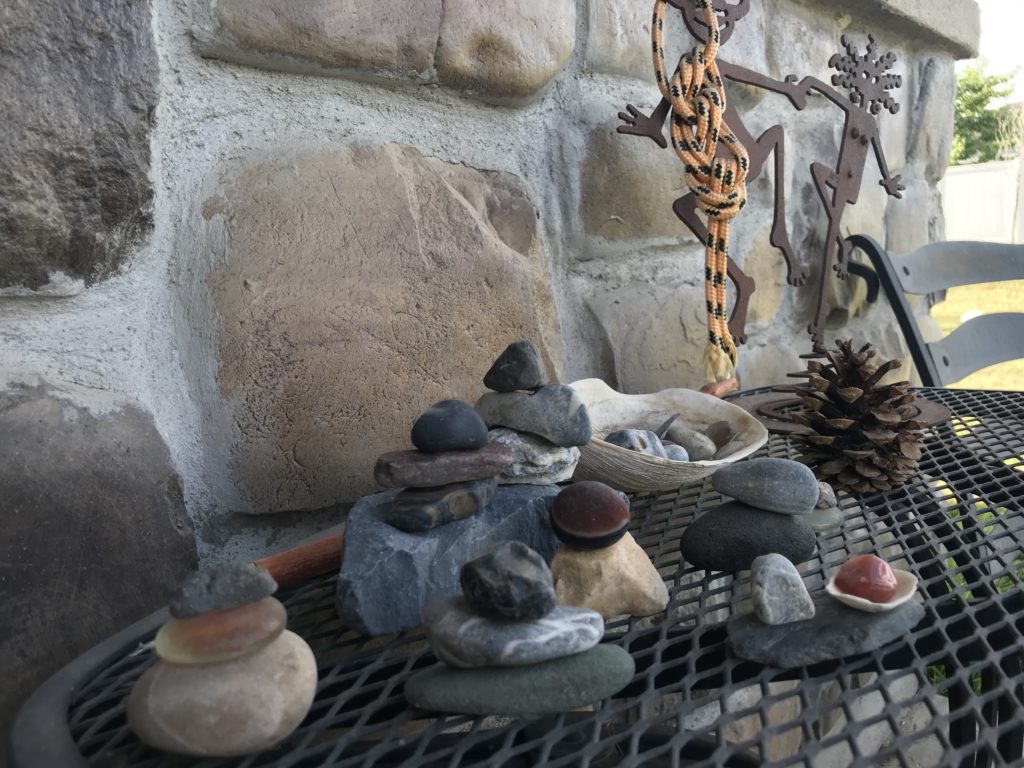
First, the photo. It’s just a hobby. Stacking stones. Sometimes tiny ones. Sometimes small boulders. These will stand on my bistro table until they don’t. The wind may blow. The table may be jarred. I might just move them. It’s… fun.
Now, a simple truth — what you look for, you will find.
Hmm…. It gets more involved than that, but let’s build from the simple first.
If you look for joy, you will find it. I’m quite fond of my friend Sarah MacDougall, who in this context says, “joy is a radical act.”
If you look for pain, you will find that.
What I continue to learn of such a simple truth is really an orientation of wholeness. In other words, joy is always available because joy is nested within wholeness itself.
The same for pain. It is also nested within wholeness itself.
Yes, sometimes the joy is nuanced to the metaphorical. There is joy in the flower. There is joy in stone figures.
These of course become projected qualities.
Sense-making can’t be done without a sense-maker (or sense-makers). Consciously, or not.
Yes, it gets more involved. Projections are sometimes about desire. And sometimes, they are about hidden and unresolved qualities. Sometimes they are about judgements. Sometimes fears. Quite a thing to be human, isn’t it.
From the field of Appreciative Inquiry, “what you give your attention to, grows.” I love the deep and aware humanness of such premise that translates so well to practice.
Just a bit further, please. Stay with me.
What you look for, you will find. And, what you find, will only be partial. Perhaps temporary.
Joy exists, because it does, invoked by the observer. Joy exists, except when it doesn’t.
That’s a kicker, right. It’s also a rather reaching implication of the starting simple truth. Because one mindset / heartset points to joy. Of course. Another, points to what might just be even more joy, to accept that it exists with pain, or other things.
Oh dear, how wonderful the simplicity that sifts out of complexity.
I would suggest, the effort, the practice of seeing and encountering the “all of it”, grows us to the kind of matured creatures that really seem needed in what feels like this evolutionary turn, no.
I think we can get beyond declarations of division, accusations of acrimony, and the shaming and blaming that my friend Quanita Roberson reminds me, is most often a way to hide from feelings.
Good golly, it’s good to work this kind of practice with groups. Sure glad for some dear people that have had the courage to find and lead from the simple that not only welcomes a refining interior, but requires it.
In the turning in which we live.

Beautiful friend! But then again I was looking and expecting to find beauty. 🙂
Clever. And kind.